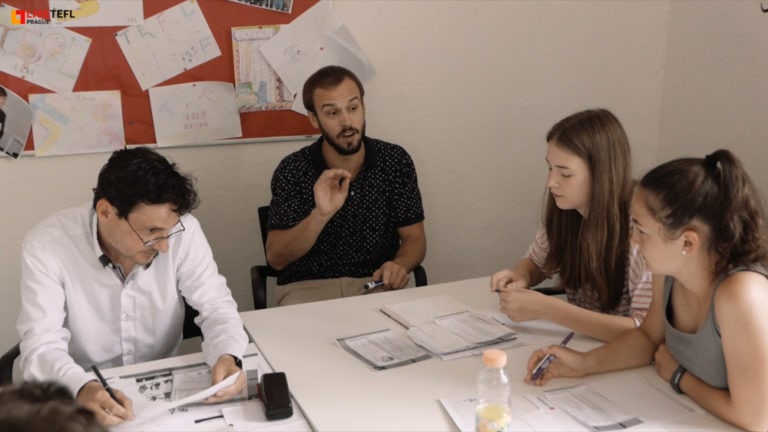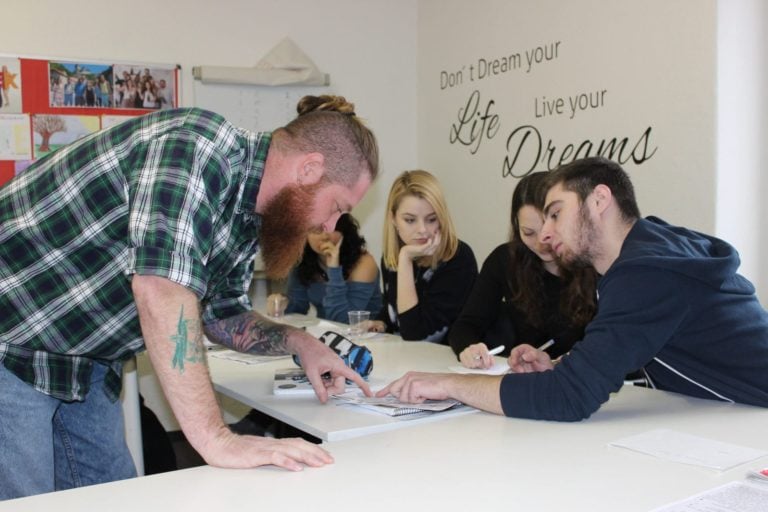So you’ve successfully completed your TEFL course and now you’re looking for a job. Creating your winning Curriculum Vitae (CV) or resumé is the first step (the term ‘resumé’ is most often used in the US). This is followed a close second by writing a covering letter that convinces academic directors to read your CV.
There’s one other thing that you really need to do as well. You need to research your destination. You need to decide if it’s the kind of place you’d like to live in, if you can afford to live there. You also need to check the job requirements in the place you decide on. In some countries you are likely to need an accredited qualification; in others it may be enough to be a native speaker. Some schools make a TEFL diploma a prerequisite; others are happy with the combination of a TEFL certificate and a university degree. Make sure you read the job specifications carefully. You are only wasting your own time, and the recruiter’s, if you apply for a position without the mandatory qualifications.
Your CV
Too often people only get around to writing or revising their CVs when they are made redundant or fired, or when they see an interesting job advertisement. Result: a CV written in a hurry. One source suggests that people, on average, only spend one hour writing their CVs. Your CV is far too important a document to spend so little time on.
You need to take the time to think carefully about your CV and to recall what you have done during your career, determine what’s interesting and relevant, and decide how to document your experience, achievements, education and skills. You also need to take the time to write it clearly and concisely.
This guide will walk you through the steps and help you build your professional TEFL CV—a CV that will convince academic directors to give you that all-important interview.
Spend the time now building a professional CV and keeping it up-to-date for the future is easy. You will have a firm foundation that only needs the latest information added, and a quick review to see if anything needs to be removed before you can reuse it.
What is it?
Put simply, your CV is your marketing material. It’s like a product brochure, and you’re the product. It must sell, at a glance, your skills and experience.
Consider the brochure for a luxury hotel. It will present a positive view of the property, and won’t show you the garbage area. You will find it easy to find the key features of the hotel—the selling points—such as restaurants, the gym or the spa facilities. Product brochures, whether for hotels, clothes, electrical items, or furniture, work because of their layout and professionalism. These are important things to consider when you are writing your CV.
Usually a CV is around two-pages long, and includes a summary of your educational and academic achievements, work experience, skill sets and any other information an employer might want to help them make the decision to call you for an interview.
Your CV must be informative, it must tell the reader about your experience and education relevant to the position you’re applying for. And it must be easy for the recruiter to read—after all, they are probably looking at a great many CVs.
A Few Brief Words on Layout
Your CV needs to be visually appealing and easy to read. It should be carefully spaced and make use of white space. Make sure you use a good sized font, and include logical headers with relevant, appropriate information. A 2-page CV is generally regarded as optimum.
CV Format
There’s no standard format for a CV, but there are certain guidelines you should follow and certain sections you need to include.
There are three key standard sections that you must include in your CV.
Your Personal Details and Profile
This includes:
- Your name
- Your contact details
- A short personal profile (optional)
Skills and Abilities
This section includes your key skills, in particular those that relate to TEFL employment. You also need to consider that you may have skills you don’t wish to use, so you may not include all your skills on your CV.
Professional experience
- Employers’ names, places, dates, responsibilities, achievements (be specific)
- Include TEFL rich details—classes you have taught, textbooks used, who you have taught
- For non-TEFL experience highlight any training, materials development or presentation you did
Key skills
- Teaching specialisms (i.e. Business English, Skype lessons, exam classes, English for Specific Purposes)
- Include other key skills when they are relevant (could include skills related to using technology, including computers, Skype, apps, iPads, etc.), writing, materials development
Education
- Your qualifications. Highlight those that are most relevant by putting them first
- Put your TEFL qualification first, then your degree, then other qualifications
- If you have a qualification that is not related to TEFL at all, and you’re running out of space, leave it out
Optional Sections
You may wish to include some further information in your CV, such as a personal statement and information on relevant interests.
You may decide to include a personal statement. This will normally be between two and five sentences long, and will present you as enthusiastic and upbeat. If you do not have TEFL experience this is an excellent place to tell the prospective employer why you are seeking a TEFL job. It’s also a place to let personality shine through so write it in your own words and avoid cutting and pasting it from the internet.
Examples:
Without TEFL experience
After working in business for ten years, I am looking for a fresh challenge and TEFL offers me a chance to work with people in an interactive, stimulating environment. I enjoy working as part of team, but work equally as well independently. TEFL offers me an environment and experiences that bring with them a great deal of personal reward and cultural enrichment, and these are the things that I now consider to be important to me in terms of job satisfaction and happiness.
With TEFL experience
- I am an enthusiastic, qualified EFL teacher keen to broaden my international experience to create a solid foundation for my future TEFL studies. I am a native English speaker and love the challenges of creating materials and helping students learn. The focus of my teaching in the past has been on teaching young children in a classroom environment, and I am now seeking to teach different age groups and also to gain experience teaching individual and exam preparation classes.
Relevant hobbies/interests
- This is not a mandatory section of your CV but it is useful if you are applying to teach at a summer camp
CV Writing Guidelines
- Address the skills requirements mentioned in the job advertisement
- Keep it simple and short (approximately 2 pages maximum)
- Avoid wasting space—make the most of your 2 pages
- Keep it factual and honest
- Write short sentences rather than long descriptive blocks of text
- Break up text with bullet points to make it easier for reader
- Give most space to the most relevant information
- Put the most relevant information at the top
- Stick to work related information (except if you’re applying to work at a summer camp)
- Make sure your spelling is correct, your punctuation consistent and your grammar accurate
- Avoid mixing US and UK spelling
- Pay attention to the details and avoid careless errors
- Add a professional photo if you feel comfortable with it (photos help people remember you)
Use nouns for your current skills, past forms of verbs for previous jobs and present forms for current position






